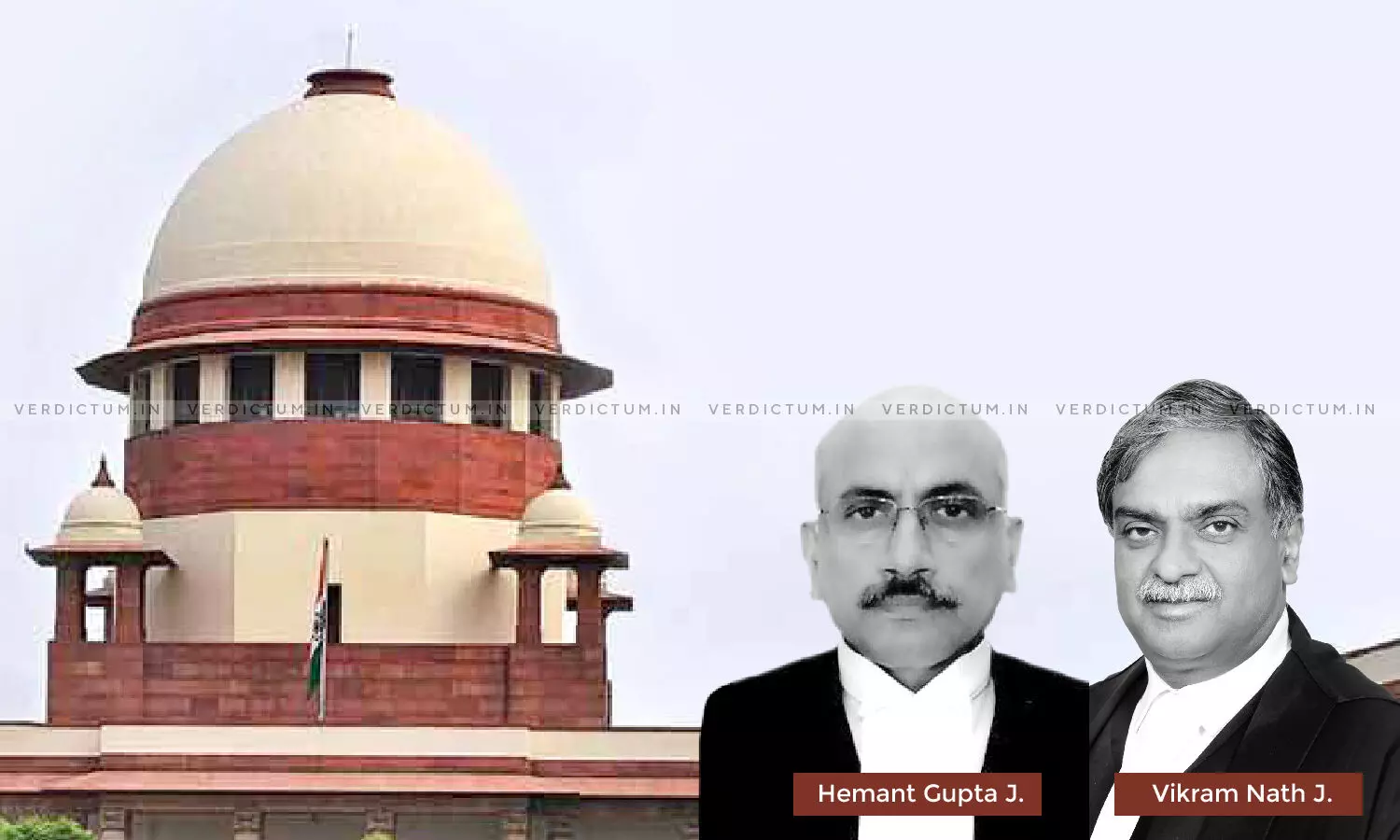
Supreme Court Sets Aside CAT Order Directing Separate Zone Of Consideration For Promotion Of SC/ST Candidates
 |
|The Supreme Court has set aside the order passed by the Central Administrative Tribunal, affirmed by the Delhi High Court and the Punjab and Haryana High Court directing separate zone of consideration for the promotion of Scheduled Caste/Scheduled Tribe candidates to the post of Superintendent from the post of Inspector in the Customs and Central Excise Commissionerate.
The facts of this case being that the candidates belonging to the Scheduled Tribes had prayed for a separate zone of consideration to be created for the Scheduled Tribe candidates so that the vacancies in the cadre of Superintendent meant for them could be filled up.
It was contended by the Counsel for the Union of India, Mukesh Kumar Maroria, that there cannot be a separate zone of consideration for each category of the officials. It was submitted that the zone of consideration is in respect of the candidates falling in the seniority list.
It was further pointed out that the candidates belonging to Scheduled Caste and Scheduled Tribe were given relaxation to extend zone of consideration up to five times of the vacancies.
It was argued that the effect of the order passed by the High Court would be that all eligible candidates, at whatever position in the seniority list, would fall within the zone of consideration, though they may be lowest in the list. Such creation of zone of consideration was not in consonance with the efficiency in the service.
On the other hand, Advocate Dr. M.P. Raju, appearing for the candidates contended that the High Court's Order was fair and reasonable so as to give effective meaning to the policy of reservation for the Scheduled Caste and Scheduled Tribe.
He argued that there has to be a separate zone for each category i.e., for general, Scheduled Caste, and Scheduled Tribe, rather than the common seniority list which is prevalent for determining the zone of consideration for promotion.
The Supreme Court's Bench of Justice Hemant Gupta and Justice Vikram Nath observed thus "We find that there are three situation of promotion which are required to be examined. One is backlog vacancies for which an Office Memorandum dated 26.8.2004 was issued. Second is ad hoc promotions for which an Office Memorandum dated 30.4.1983 was issued followed by 30.9.1983 and 7.9.2000. Clause 7 of the Office Memorandum of 30.4.1983, as reproduced above, specifically states that, for regular promotions, procedures and instructions laid down in the Brochure will continue to apply. For regular promotions, Office Memorandum has been issued on 24.12.1980, 22.4.1992 and 6.1.2006 wherein zone of consideration was prescribed keeping in view the number of vacancies which are to be filled up."
The Court pointed out that Central Administrative Tribunal and the High Court had missed the distinction between ad hoc promotions and the regular promotions to be made through Departmental Promotion Committee (DPC).
In that context the Court explained thus "The distinction between a special drive for filling up backlog vacancies and regular promotion to candidates both from the reserved and the unreserved categories, is too obvious. While filling up vacancies by way of promotion on regular basis, a DPC is constituted and the profile of the candidates coming within the zone of consideration is prepared. But in a special drive for filling up the backlog vacancies meant for reserved category candidates, such an exercise become redundant. This is because all candidates who will be considered for promotion, in a special drive, will invariably belong to the same reserved category, as otherwise it will cease to be a special drive."
The Court noted that the High Court and Tribunal had failed to address the issue whether there was a special recruitment drive for filling up of backlog vacancies and they applied the yardstick meant for ad hoc promotions to the case of regular promotions, though the case of the candidates was for unfilled backlog vacancies.
"Therefore, we find the orders of the High Courts are clearly erroneous and not sustainable in law. Consequently, the orders passed for regular promotion by extending the zone of consideration do not arise. The same are set aside and the appeals are allowed.", the Court held.
Cause Title- Union of India & Ors. v. Gopal Meena & Ors.
Click here to read/download the Judgment